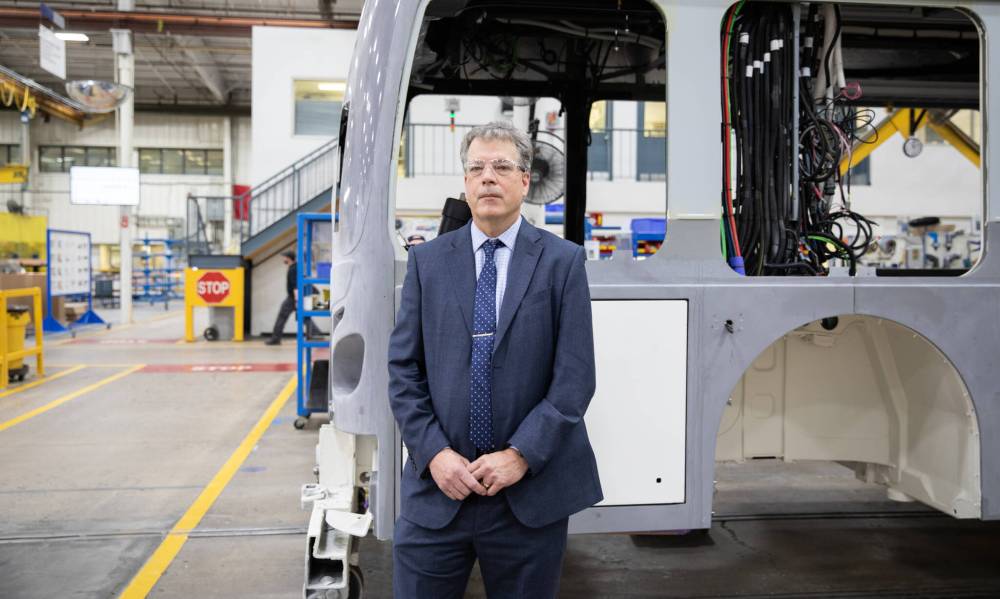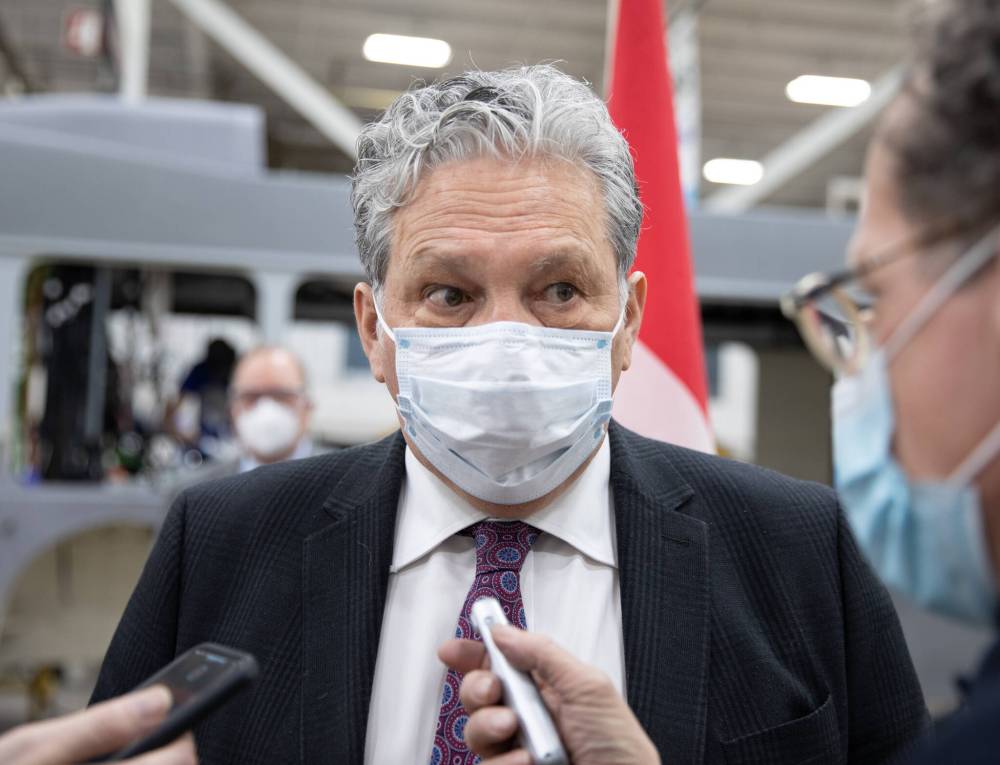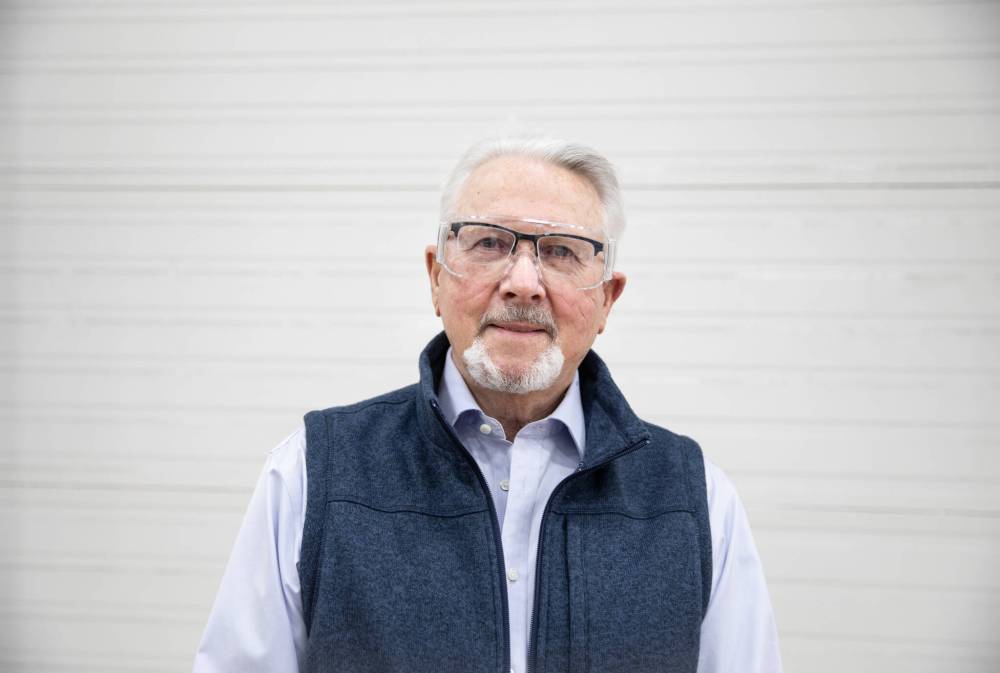VTC gets $2.9-M boost to help manufacturers go green
Advertisement
Read this article for free:
or
Already have an account? Log in here »
To continue reading, please subscribe:
Monthly Digital Subscription
$0 for the first 4 weeks*
- Enjoy unlimited reading on winnipegfreepress.com
- Read the E-Edition, our digital replica newspaper
- Access News Break, our award-winning app
- Play interactive puzzles
*No charge for 4 weeks then price increases to the regular rate of $19.00 plus GST every four weeks. Offer available to new and qualified returning subscribers only. Cancel any time.
Monthly Digital Subscription
$4.75/week*
- Enjoy unlimited reading on winnipegfreepress.com
- Read the E-Edition, our digital replica newspaper
- Access News Break, our award-winning app
- Play interactive puzzles
*Billed as $19 plus GST every four weeks. Cancel any time.
To continue reading, please subscribe:
Add Free Press access to your Brandon Sun subscription for only an additional
$1 for the first 4 weeks*
*Your next subscription payment will increase by $1.00 and you will be charged $16.99 plus GST for four weeks. After four weeks, your payment will increase to $23.99 plus GST every four weeks.
Read unlimited articles for free today:
or
Already have an account? Log in here »
Hey there, time traveller!
This article was published 21/04/2022 (1338 days ago), so information in it may no longer be current.
The sizable heavy equipment manufacturing sector in the province received a $2.9-million boost from the federal government to help in its transition to low-emission technologies and advanced manufacturing.
The funding comes out of the PrairiesCan’s Regional Innovation Ecosystems program but it is part of the federal government’s larger green economy push emphasized by the newly created $15-billion Canada Growth Fund announced in the recent federal budget.
The $2.9 million will be administered by the Vehicle Technology Centre (VTC), providing the occasionally underfunded non-profit organization, which has been around since 2002, with one of its largest capital infusions ever.

The organization operates with a volunteer board and works with a small group of about 24 companies that include many national and North American leaders including NFI Group Inc., the largest bus maker in North America (where the funding announcement took place), Buhler Industries, the only four-wheel drive tractor manufacturer in the country and Fort Garry Fire Trucks, the largest fire truck manufacturer in the country.
Ron Vanderwees, president and CEO, of the VTC, said the funding will go towards accelerating each company’s product and process development and assisting cluster development like the promotion of intercompany and company-to-academia knowledge sharing and collaboration.
One such program that is already underway is to develop an automated process to trim fibreglass parts.
The VTC also represents companies that build specialized agricultural implements, underground mining equipment and airport runway cleaning equipment. These companies manufacture low volume but high quality equipment using processes that have their own challenges.
Vanderwees said, “Heavy equipment and vehicle manufacturers in the province are facing disruptive change almost as large as the introduction of the internal combustion engine many years ago.”
While the sector includes a good number of industry leaders, many are family-owned and have been around for a long time.

Doug Duncan, chairman of the board at VTC, said, “The move to a green economy is a very big thing and a lot of our companies in the province have a lot to learn.”
To aid that process, Vanderwees is heading to Germany next month to attend some conferences on the latest technologies and engineering practices and plans to share what he learns with VTC members.
In such an environment there is obviously a need for significant investments.
Dan Vandal, the minister responsible for PrairiesCan, hyped the Trudeau government’s series of funding schemes announced in the federal budget, many targeted at the transition to a green economy.
“That is what the election was essentially fought on last September,” he said. “It is a major pillar of our platform and we are taking a whole of government approach.”
Details of how the Canada Growth Fund will work are still being rolled out, but the expectation is that it will leverage additional private investment by a factor of three.

He said he is confident that the Prairie provinces will get their share of that $15-billion fund.
Critics have said Ottawa’s assistance for the transition to a green economy does not go far enough but still it committed $1.7 billion to extend incentives to purchase zero-emission vehicles to 2025; provided $547.5 million to help companies transition their medium-duty and heavy-duty vehicle fleets to zero-emission; proposed a tax credit of up to 30 per cent on net-zero technologies, battery storage solutions, and clean hydrogen; and funding to build a national network of electric vehicle charging stations.
martin.cash@freepress.mb.ca

Martin Cash has been writing a column and business news at the Free Press since 1989. Over those years he’s written through a number of business cycles and the rise and fall (and rise) in fortunes of many local businesses.
Our newsroom depends on a growing audience of readers to power our journalism. If you are not a paid reader, please consider becoming a subscriber.
Our newsroom depends on its audience of readers to power our journalism. Thank you for your support.





